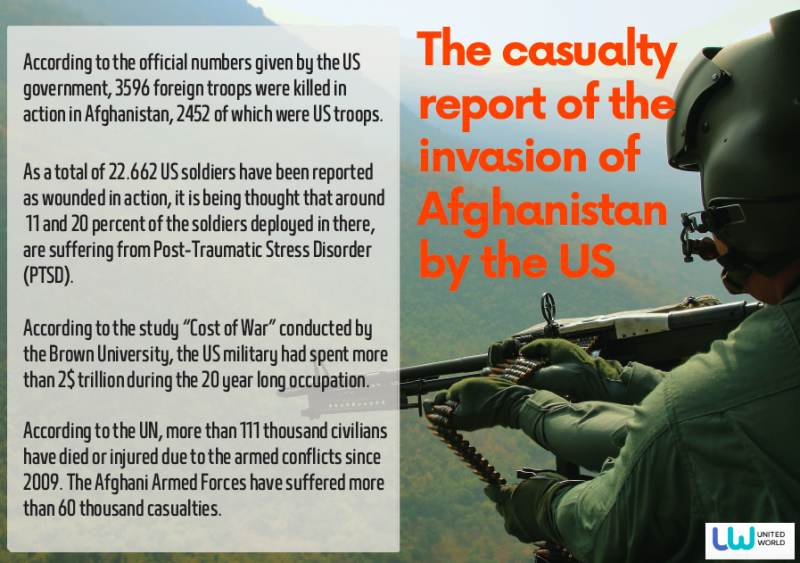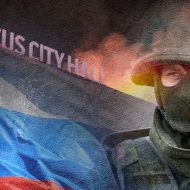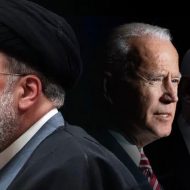By Cansu Yiğit
“Over many, many years, we’ve served together in Afghanistan. We’ve been able to contain, to a certain degree, terrorist dangers, but unfortunately we have not been able to build a nation as we would like it to look” said the German Chancellor Angela Merkel, admitting the defeat in Afghanistan during a meeting with the US President Joe Biden.
The occupation forces will fully withdraw from Afghanistan on September 11 this year, after the crushing defeat of the longest US overseas operation and NATO’s first “out of area operation”. It is still a matter of debate what the 20-year occupation has meant for all those involved, and what awaits Afghanistan after the withdrawal. Before making any predictions for the future, it is necessary to make a brief summary of the past.
1) Why was Afghanistan invaded?
On September 11, 2001, four commercial airliners were hijacked in Washington and New York, two of which were crashed into the World Trade Center. Another crashed into the outer perimeter of the US Department of Defense Building (also known as the Pentagon). The last either crashed or was shot down on an empty field over Pennsylvania. Nearly 3,000 people were killed in the attacks, costing the US economy more than $120 billion. The main perpetrator of these attacks, which were described as a “turning point” for the United States and the world, was Osama Bin Laden, the al-Qaeda leader who was allegedly under the protection of the Taliban government in Afghanistan.
Then US President George Bush announced that they had launched a “Crusade” against terrorism after the attacks, and on October 7, American and British bombers had begun to drop bombs on Afghanistan. This was the beginning of a 20-year occupation.
US interests in Afghanistan began with the Soviet war there in the 1980s. Some fundamentalist religious groups in Afghanistan were supported by Washington under the goal of “defeating communism” and to prevent the Soviets from establishing a zone of influence in the Persian Gulf through Central and South Asia. One of those organizations that was supported was al-Qaeda. Today, it is well known that the al-Qaeda leader Osama bin Laden was trained and funded by the CIA. The Taliban, considered a supporter of al-Qaeda, have taken more ground and grown stronger in Afghanistan since the Soviets withdrew completely in 1989. They have won the power struggle over many different ethnic groups and took control of a large chunk of the country in 1994.
After the 9/11 attacks, Afghanistan was targeted as a justification for a US invasion alongside with Iraq. The “pawns” used against the Soviets in the past would now serve a source of “legitimacy” for the US military interventions in the Middle East.
2) Why did NATO get involved?
NATO did not stay on the sidelines during the “Crusades” of the United States and Britain. The famous Article 5 of the Treaty was applied for the first time on September 12, 2001. According to Article 5, in the event of an offensive attack on one of the alliance members, the attack will be treated as if it was made on all the alliance members, and will be responded to in accordance with Article 51 of the United Nations Convention, in accordance with the right of collective self-defense.
Although NATO was not involved in the first phase of the military campaign initiated by the US and the UK on October 8, later on, it stepped in by forming an “International Security Assistance Force” (ISAF). The ISAF’s actions, headquartered in Kabul, spread throughout the entire region after 2005. In 2006, it also took command of most regions that were previously held by the US troops. Thus, NATO, which entered Afghanistan as a security and humanitarian assistance force, was turned into a force of military operation slowly over time.
Why did NATO accept its first mission outside of Europe and got involved in the invasion in the first place?
First of all, let us remember that NATO was established as a defense organization against the alleged threat of a Soviet invasion during the Cold War. However, NATO’s existence came into question following the collapse of the Soviet Union, and NATO began to set new missions for itself. Firstly, they got involved in the Yugoslav Wars by request of the UN. It is commonly said that Afghanistan had been the “milestone” in terms of coming up with many first times for NATO, which has shown its will to expand by incorporating the Eastern European countries to its alliance. Firstly, it is their first mission site outside of Europe. Secondly, it is their first action against a non-state enemy (terrorism). It could be said that with the invasion of Afghanistan, NATO has entered a process that evolved it to a security alliance, from being a collective defense alliance. However, even after 20 years the debates inside and outside NATO members still go on, as each country’s definitions of terrorism and national security differ from one another.
In summary, the NATO involvement in the invasion of Afghanistan has brought the results;
* Legitimization of the occupation in the eyes of the international community,
* Allowing the United States to concentrate more on the War on Iraq,
* Being the catalyst for NATO’s transformation
3) Why were the US and NATO defeated?
After the invasion of Afghanistan in 2001, the Taliban were forced to give up their governmental power after as little as one month. Its members fled to the remote areas of the country and Pakistan. This quick victory eased the concerns of the United States and thus it turned its attention towards Iraq, which it would invade two years later. Of course, it is not right to relate this defeat only to the American delusion of a “victory”. We also have to factor in the geographical conditions of the country, the dominant feudal structure and, most importantly, the strength of the Afghan people to resist the foreign invasions, which was tested first against British and then against the Soviets… It should also be added that the atrocities committed by the occupation forces to both civilian or non-civilians strengthened the support to the Taliban.

The operation taking the longer than expected because of the reasons mentioned and the casualties incured by occupation forces by the Taliban (and suicide bombings) led the United States and NATO to change their “nation-building” strategy, which looked down on and humiliated the Afghan people. We started to see the number of foreign troops in the country increasing after 2009, reaching its peak in 2011. Afghan Armed Forces were also being trained as part of the “force building” plan.
However, the Taliban had become stronger in the meantime and had drawn the occupying forces into a war of attrition.
After it became clear that the war could not be won, the United States was forced to accept the invitation from the Taliban to negotiate in 2010, which it had previously rejected. The negotiations did not have any solid results. The second request came from the Afghan President Ashraf Ghani, who argued that the Taliban should also be included in governmental roles. The Taliban and the Afghan government sat down on the negotiation table in 2015. Although these talks, in which the United States is an observer alongside with China, again yielded any solid results, Ghani signed an agreement with Gulbuddin Hekmatyar and his groups in 2016, ending their resistance.
While further negotiation possibilities were being discussed between the Afghan government and the Taliban after Donald Trump took office in the United States, it was revealed that the United States had been holding secret talks with the Taliban. It was revealed that on February 29, 2020, the “Agreement for Bringing Peace to Afghanistan” was signed. This agreement can be defined as the documentation of the US defeat in Afghanistan.
According to the agreement, all US and NATO forces would withdraw from Afghanistan, and the Taliban would be in charge of preventing any terror activities, especially from al-Qaeda. The Afghan government would negotiate with the Taliban, and the United States would lift the economic embargo if the Taliban complied with the agreement terms. The US also persuaded the Afghan government with another agreement to accept this agreement with the Taliban. As part of the deal, the United States gradually began withdrawing its active troops, but the US Senate passed a resolution restricting Trump’s powers to prevent the withdrawal of all troops in Afghanistan. Joe Biden, who took office from Trump, said it was “time for the US troops to come back home” and announced that he would implement Trump’s deal, despite the delay.
4) What is waiting for Afghanistan now?
The heavy costs of the wars in Afghanistan and Iraq, and the 2008 Global Financial Crisis, have struck a major blow to the US hegemony in the region, as well as all over the entire world. Although the US is no longer able to make a “prideful retreat”, Washington still believes that an unstable and high-tension Afghanistan is to its benefit. They now aim to leave the muddy situation to their two biggest rivals, Russia and China. James Jeffrey, the former US Special Representative for Syria, openly admitted that the US was pursuing the same policy in Syria as well: “Our goal is to make the war in Syria a dead end for Russia.”
On the other hand, it is no secret that Russia, the largest military power in the region, and China, the largest regional economic power, do not want the United States, the superpower of the last century, in the region. They also know, however, about the quagmire set up by the US, which is why some cautious statements are coming in from these two countries.
We can foresee that Russia and China will be the decisive forces in Afghanistan in the near future either one way or another. Countries in the region, and especially China and Russia, are well-aware that a prolonged civil war in Afghanistan would also threaten their own interests in the proximate regions. Stability in Afghanistan is definitely needed for Central Asia to develop and to prosper as a whole. This is because Afghanistan is at the heart of the Chinese “Belt and Road Initiative” with its dominant position in Central Asia. For this reason, both Russia and China have been negotiating with the Taliban and trying to mediate between the Taliban and the Afghan government since the 2010s, when it was most apparent that the United States would lose the war in Afghanistan.
Although the external actors are working hard for a long lasting peace, the occasionally interrupted negotiations between the internal actors in Afghanistan since September 2020 have yet to come up with any solid results. Meanwhile, the Taliban had been advancing rapidly as the US and NATO forces were withdrawing from the region. War clearly does not seem to be an option for the Afghan people, who paid horrible prices during the 20-year occupation and the consequent civil war. The Taliban, which has so far taken a highly uncompromising stance, has two options today: they will either offer compromises to their radical demands so they will be accepted internationally and come to an understanding with the Afghan government, or they will continue to impose these demands and rule Afghanistan as an outcast political actor. It is clear that the second option will not be a piece of cake for Afghanistan, which is already struggling with absolute poverty and underdevelopment. All the countries in the region, including Russia and China, will face one of the biggest tests in their history during this process. They will either keep up with the chaos, or they will finally decide that they had enough.
5) Should Turkey stay in Afghanistan?
This question was a most controversial one in Turkey, especially after the Taliban announced that “The NATO force of Turkey, should withdraw from Afghanistan” in a threatening tone. Some argue that the Turkish troops should withdraw due to security concerns, and some say that the “Troops should stay specifically to prevent a possible refugee wave.”
Turkey has been keeping troops in Afghanistan under NATO command since 2002, after the Turkish Parliament Resolution 722, back on October 10, 2001. The Turkish Army has not operated in Afghanistan as a combat force, but rather took charge of the training of the Afghan National Army, security, maintenance, repair and reconstruction. They have also been in charge of the Hamid Karzai International Airport for the last 6 years.
Afghanistan is much less safe today than it was before the invasion, it is in a horrible trap of corruption, and at the center of the growing drug trafficking, especially trafficking of opioids. As the future of the negotiations between the Afghan government and the Taliban remains uncertain, the situation in the country is very likely to go even more chaotic rapidly. And when these facts are well considered, it is not a risk that can be taken that Turkey will remain in Afghanistan with the aim of easing tensions with the United States and the West, breaking the possible domination of Russia and China in the country which some experts have stressed. However, there are far less risky ways to slow down a possible refugee wave, such as cooperating with Iran. If Turkey is planning to stay in Afghanistan in order to mediate between the parties for a long-lasting peace, contribute to a safe transition, and to take an active role in this possible regional cooperation, the priority should be given to take an approval of the Taliban as well. Otherwise, no matter how good Turkish intentions really are, the cost of this involvement will be very heavy.









shame, shame and shame! on US, Europe for choosing the most corrupt regime in Kabul
weapons do not fight wars
fighters fight wars
three trillion US $ went into the pockets of local and international warlords, including US warlords
the more I look at politicians the more I love my dog
Such great website
Amazing blog thanks for sharing today on this blog